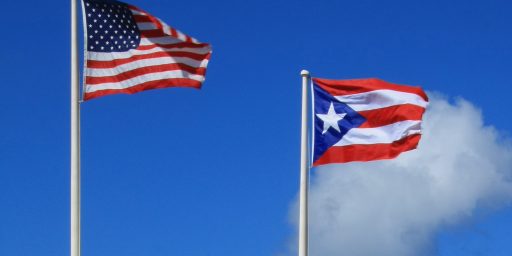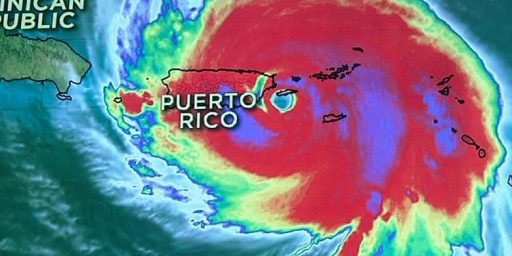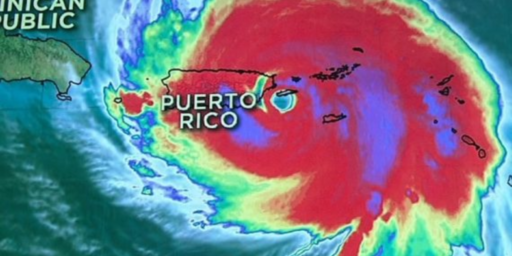Debt Trouble in Puerto Rico
Steven L. Taylor
·
Thursday, February 13, 2014
·
5 comments
Via the BBC: Puerto Rico’s debt cut to junk status by Fitch
Puerto Rico’s debt is 93% of the island’s gross domestic product – a ratio that is higher than that of Spain.
The island’s economy has contracted every year since 2006.
[…]
The current unemployment rate is 14.7% – twice that of the US.
While I was aware of the debt problem in Puerto Rico, this brief story struck me as to how little reporting there is in most US news on US territories. Puerto Rico has ~3.7 million US citizens, and yet is largely ignored.

About Steven L. Taylor
Steven L. Taylor is a Professor of Political Science and a College of Arts and Sciences Dean. His main areas of expertise include parties, elections, and the institutional design of democracies. His most recent book is the co-authored
A Different Democracy: American Government in a 31-Country Perspective. He earned his Ph.D. from the University of Texas and his BA from the University of California, Irvine. He has been blogging since 2003 (originally at the now defunct Poliblog).
Follow Steven on
Twitter





They need to become a state or go their own way to have any shot at improving their situation. We aren’t doing them any favors by keeping them as a territory.
Puerto Rico needs to print it´s own money.
So much for my “retire to Puerto Rico” plan….
@James Pearce: There’s always the Virgin Islands.
@Ben Wolf: No, we’re doing them tremendous favors economically. The tax status for companies building plants in PR is insanely great, to borrow a phrase. This could continue after statehood, if that ever happens.
Independence would probably bring their economy to a crashing halt, not to mention that it is politically unpopular – i.e., the residents of PR really don’t want it, largely because they know about the economic consequences. They’ve had several votes on this through the last several decades, most recently in 2012 – and the “independence” option was chosen by less than three percent of voters.